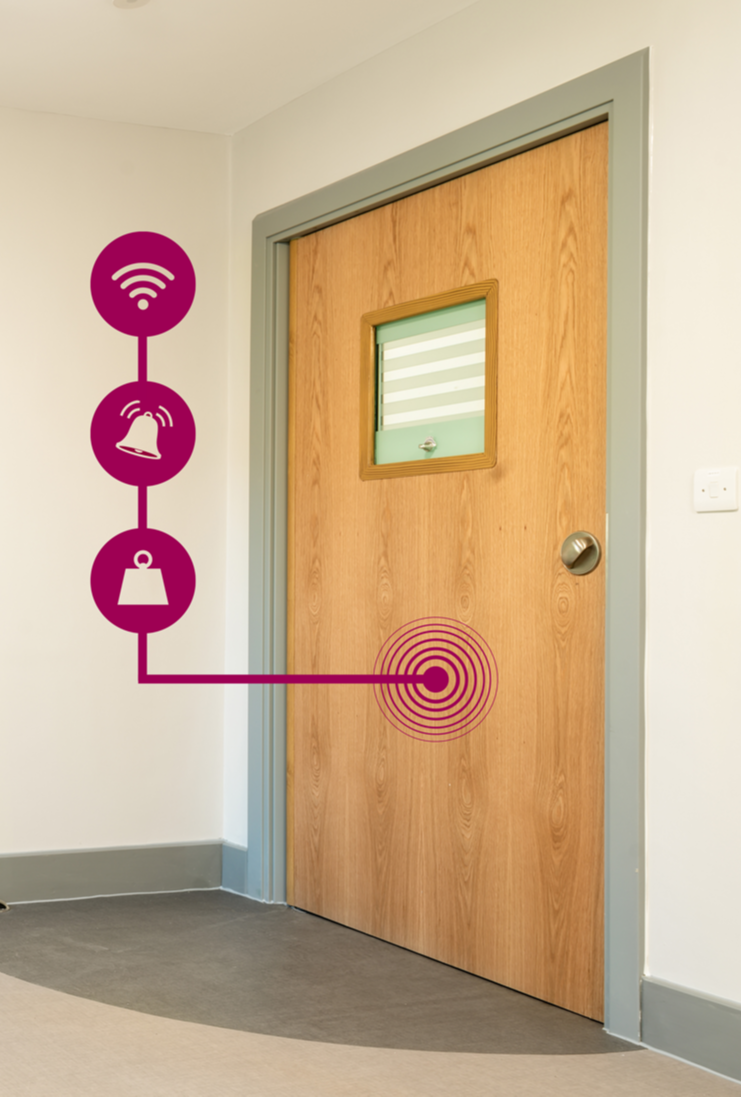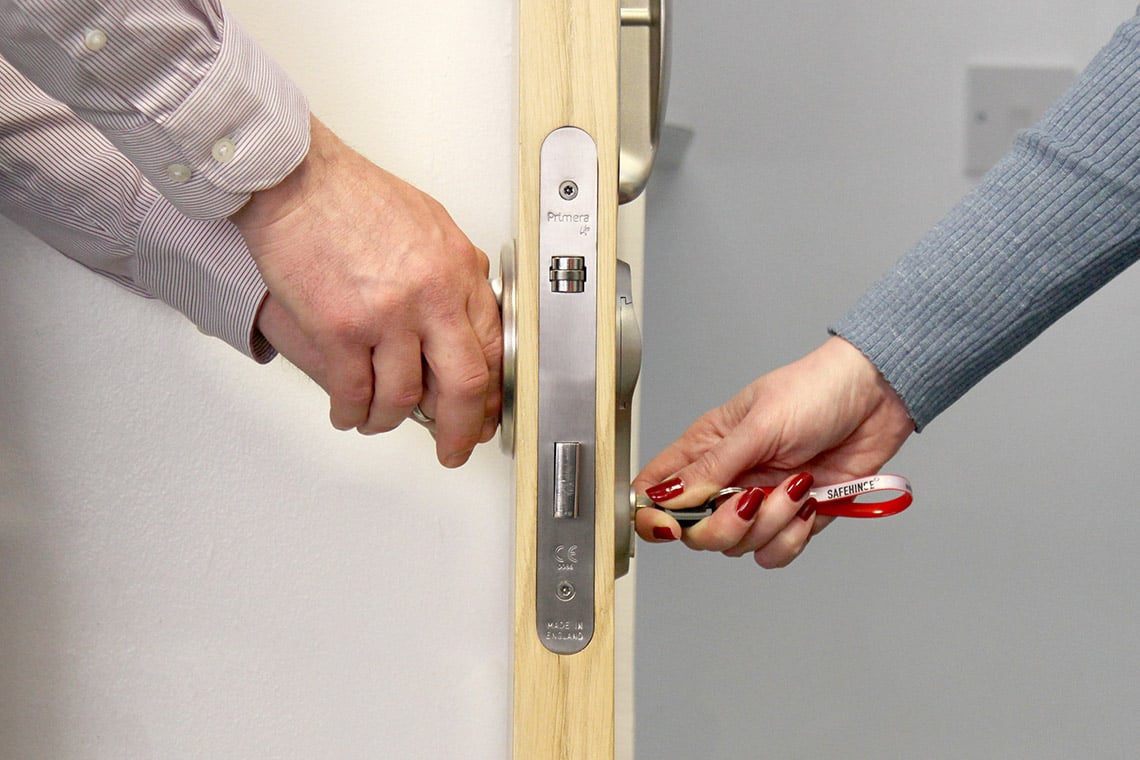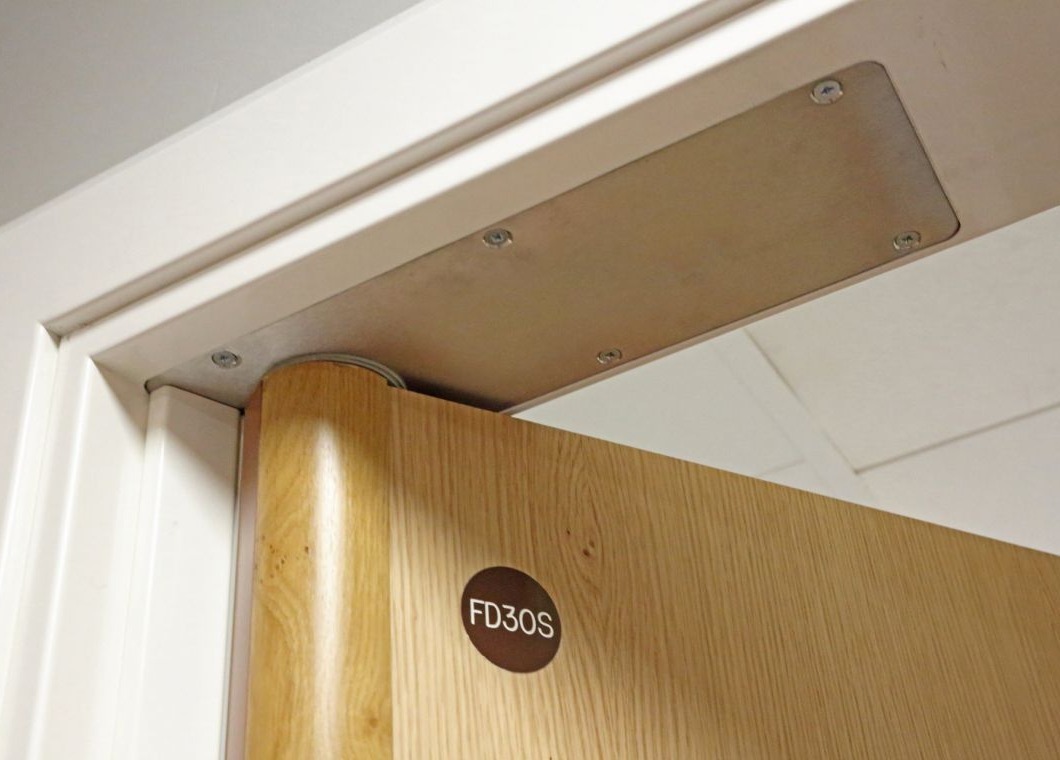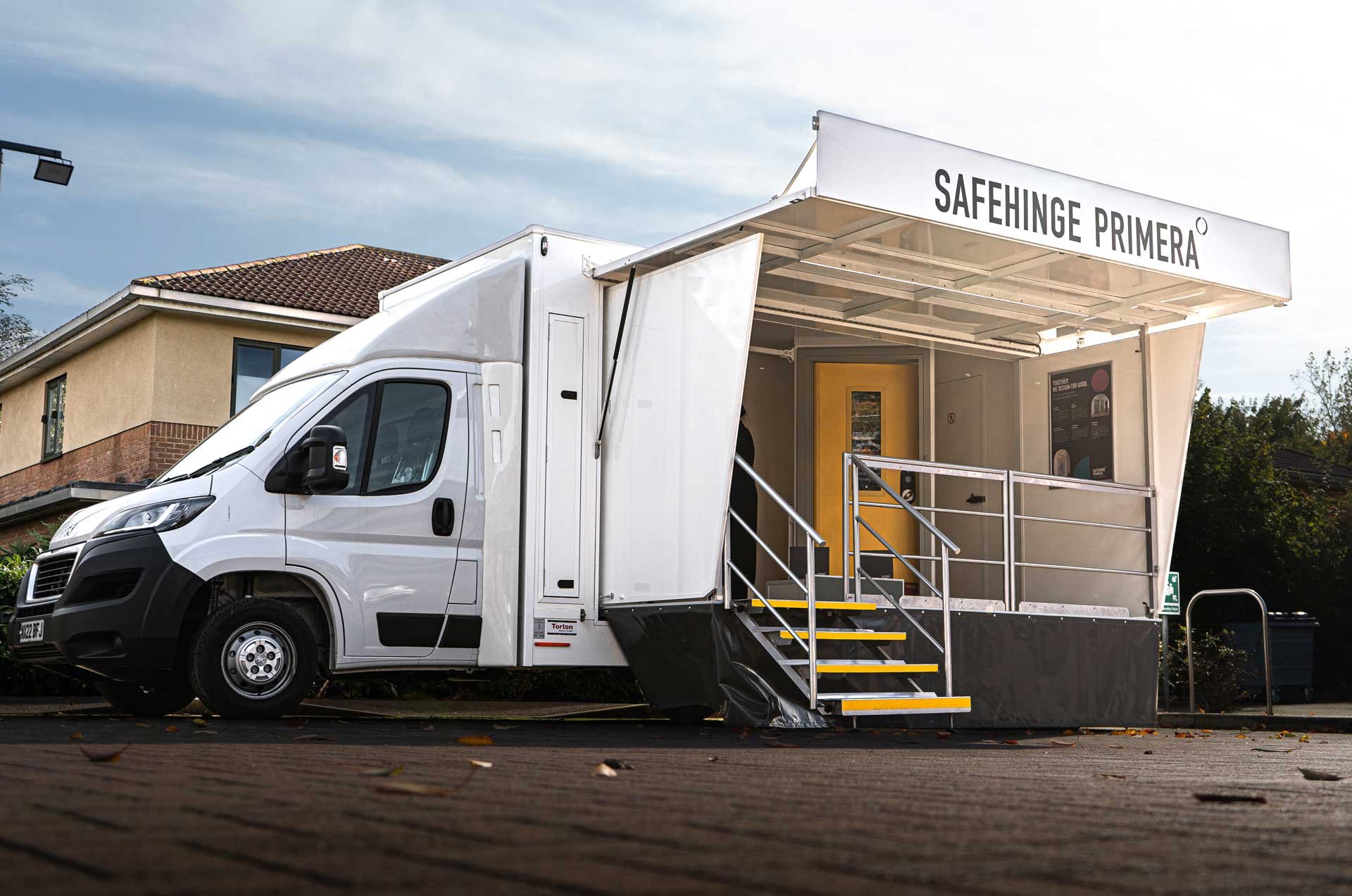OUR DOOR IS ALWAYS OPEN
To find out more about doorsets for Mental Health facilities and how to use them to increase safety, call us on 0330 058 0988 or drop us a line.
You can change your preferences or unsubscribe at any time. You agree to Safehinge Primera using your personal data in accordance with our privacy policy. We use your data to personalise and improve your experience on our digital platforms, provide products and services you request from us, and carry out research. We will never sell your personal data to third parties.
You can change your preferences or unsubscribe at any time. You agree to Safehinge Primera using your personal data in accordance with our privacy policy. We use your data to personalise and improve your experience on our digital platforms, provide products and services you request from us, and carry out market research. We will never sell your personal data to third parties.

Anti-ligature door sets and anti-barricade door sets are both specialised types of doors commonly used in mental health facilities to ensure the safety of patients and staff.
Anti-ligature door sets are designed to prevent individuals from tying or hanging themselves using the door or its hardware with a ligature.
These doors have a smooth surface, without any projections or protrusions that could be used for ligature points and have tamper-proof or concealed hinges to prevent them from being used as a point of leverage. Anti-ligature door sets also may have breakaway hinges that allow the door to be easily removed in an emergency.
Anti-barricade door sets are designed to prevent service users (patients) from barricading themselves in a room, which can create a dangerous situation for themselves, staff and others.
These doors typically have a mechanism that allows them to be unlocked and opened from the outside, even if the inside handle has been disabled or blocked.
In mental health facilities, anti-ligature and anti-barricade door sets are often used to provide maximum safety and security for patients and staff.
Anti-ligature doors prevent self-harm by patients, while anti-barricade doors prevent patients from creating a dangerous situation by locking themselves in a room. Together, they provide a safe and secure environment for patients and staff to work towards recovery.

To find out more about doorsets for Mental Health facilities and how to use them to increase safety, call us on 0330 058 0988 or drop us a line.
Patient safety is a priority when choosing a door set for mental health bedrooms, requiring both anti-ligature and anti-barricade environmental design. Door barricades are standard in these environments, so clinical staff must access patient bedrooms quickly and safely to provide essential help.
Modern anti-barricade door sets have a door release mechanism and anti-barricade locksets to break simple (learning on the door) and more determined barricades (a compromised lockset). This combination creates a reliable door set for quick access, supporting caregivers and increasing patient safety.
Anti-barricade doors typically have a mechanism that allows them to be unlocked and opened from the outside, even if the inside handle has been disabled or blocked. These doors can also have safety features such as alarm systems, breakaway handles, and impact-resistant glazing.
Anti-barricade door sets are essential to a comprehensive safety plan for mental health facilities, helping ensure patient and staff safety.
Our Swiftstop door sets are specialised anti-barricade door sets designed for use in mental health facilities.
The door sets feature several safety options, including a sliding vision panel, a door stop, and anti-ligature handles, which allow the door to be unlocked and opened from the outside, even if the inside handle has been disabled or blocked.
The door sets have optional features such as impact-resistant glazing, security fixings, and additional locking systems. The Swiftstop door sets are designed to provide a safe and secure environment for service users (patients) and mental health facilities staff, helping prevent dangerous situations such as patient self-harm or staff injury.
The Electronic Lockset, also known as the anti-barricade electronic lockset, is an innovative security solution designed to address the unique needs of mental healthcare environments.
This electronic lockset combines advanced access control technology with an override feature that allows staff to enter a room in the event of an emergency quickly if a patient barricades themselves inside.
With its innovative and intuitive design, the Electronic Lockset is easy to use and enhances the safety and security of patients and staff. It is a reliable and effective solution for mental health facilities looking to enhance their security measures and improve patient care. It eliminates the need for nurses to carry a mass of keys, and the door alarm supports the observation of patients.
Safehinge Primera's Concealed Door Closer is a component designed for use in mental health facilities. Unlike traditional door closers that are visible and can be used as a point of ligature, this door closer is fully concealed within the door frame, making it less likely to be tampered with or used as a tool for self-harm.

The concealed design also offers a more aesthetically pleasing appearance, blending seamlessly into the overall design of the door. The door closer is engineered to be durable and long-lasting, ensuring that doors open and close smoothly and quietly. With its innovative design and robust construction, the Safehinge Primera Concealed Door Closer provides a safe and secure environment for patients and staff in mental health facilities.
Read more about our Anti-Ligature door closer here.
Independent testing is vital for anti-ligature products, especially as these products are designed to save lives in mental health units.
Our handles are robust, anti-ligature, independently tested, and proven effective in various mental health environments, accommodating users' needs with varying strength and manual dexterity.
While there is currently no official UK standard for anti-ligature products, the Door and Hardware Federation has created specification TS001, which the Guild of Architectural Ironmongers has adopted to assess ligature risk in particular care environments.
The BRE Group, with industry support and collaboration with the Design in Mental Health Network (DiMHN), has developed a detailed testing guide to prevent self-harm and reduce the risk of hanging, promoting innovation and encouraging the use of independent and repeatable testing formats to assess the safety of new and existing products.
Check out our Anti-Barricade - Lifesaving Considerations Webinar and Additional Resources
The Testing Guide provides testing methodologies for materials, fixtures and hardware specifically designed for use within mental healthcare facilities.
Companies that offer additional internal testing ensure the highest level of safety when selecting anti-ligature and anti-barricade products.
According to the 2022 National Confidential Inquiry into Suicide and Safety in Mental Health, prepared by the Healthcare Quality Improvement Partnership, most in-patient suicides from 2009-2019 resulted from hanging or strangulation in a single bedroom (62%) or 29% in a bathroom.
Other stats concerning doors and windows from the report:
The most common ligature points were doors - 49% or windows - 10%
The most common ligatures were a belt - 35% or sheets/towels - 24%
The door is essential for a mental health patient as it represents privacy, dignity, and empowerment. Creating a homely and familiar environment is crucial for patients to succeed in their recovery journey. As clinical teams cannot always be everywhere, providing additional observation options through effective anti-ligature design can significantly aid clinicians in caring for their patients more effectively.

If you’d like to see our life-saving products for mental health services in action, you can book a visit from ‘Doora’, our mobile showroom, to your facility.
Learn about the life-saving details of our doors and how they balance physical & psychological safety to support mental health patients through vulnerable times.
Doors play a crucial role in ensuring the safety and security of patients and staff in mental health facilities.
Anti-barricade doors prevent patients from barricading themselves in a room, while anti-ligature doors are designed to prevent patients from using the door or its hardware as a point for self-harm.
These doors may include additional features such as concealed door closers, anti-barricade systems, and anti-ligature ironmongery to provide a safe environment for patients and staff. These specialised door systems can help prevent dangerous situations, promote healing, and provide peace of mind for patients and staff alike.
'Architectural ironmongery' in mental health refers to specialised hardware, fittings, and accessories designed to enhance safety and security in mental health facilities.
If you would like to learn more about anti-ligature or anti-barricade doors or door components, please get in touch with us today - our door is always open.
UK - Glasgow
44 Speirs Wharf
Glasgow
G4 9TH
t: +44 330 058 0988
e: info@safehingeprimera.com
UK - Blackpool
Unit 8 Bankfield House
250 Bristol Avenue
Blackpool
FY2 0JF
t: +44 330 058 0988
e: sales@safehingeprimera.com
USA - Boston MA
177 Huntington Ave
17th Floor
Boston
MA. 02115
t: +1 347. 506. 2114
e: inquiries@safehingeprimera.com
AU - Hipac Head Office
36 Long Street
Goulburn
New South Wales
Australia 2580
UK - Glasgow
44 Speirs Wharf
Glasgow
G4 9TH
t: +44 330 058 0988
e: info@safehingeprimera.com
UK - Blackpool
Unit 8 Bankfield House
250 Bristol Avenue
Blackpool
FY2 0JF
t: +44 330 058 0988
e: sales@safehingeprimera.com
USA - Boston MA
177 Huntington Ave
17th Floor
Boston
MA. 02115
t: +1 347. 378. 0174
e: inquiries@safehingeprimera.com
© Safehinge Primera 2023. Design By Submarine. Development By Crocodiles